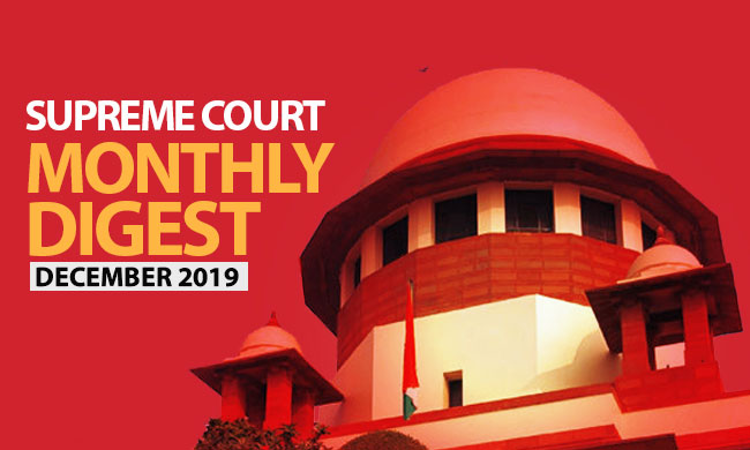- Home
- /
- Top Stories
- /
- Supreme Court Monthly Digest-...
Supreme Court Monthly Digest- December 2019
Ashok Kini
31 Dec 2019 11:40 AM IST
Consumer Forums/Commissions Cannot Consider Complaint/Appeal On Merits After Finding That It Is Time Barred M/S. Singal Udyog V. National Insurance Company Ltd. & Ors. The Supreme Court observed that a Consumer Forum/Commission after having come to the conclusion that the complaint/appeal was barred by limitation, could not consider the merits of the matter. The bench...
Next Story



